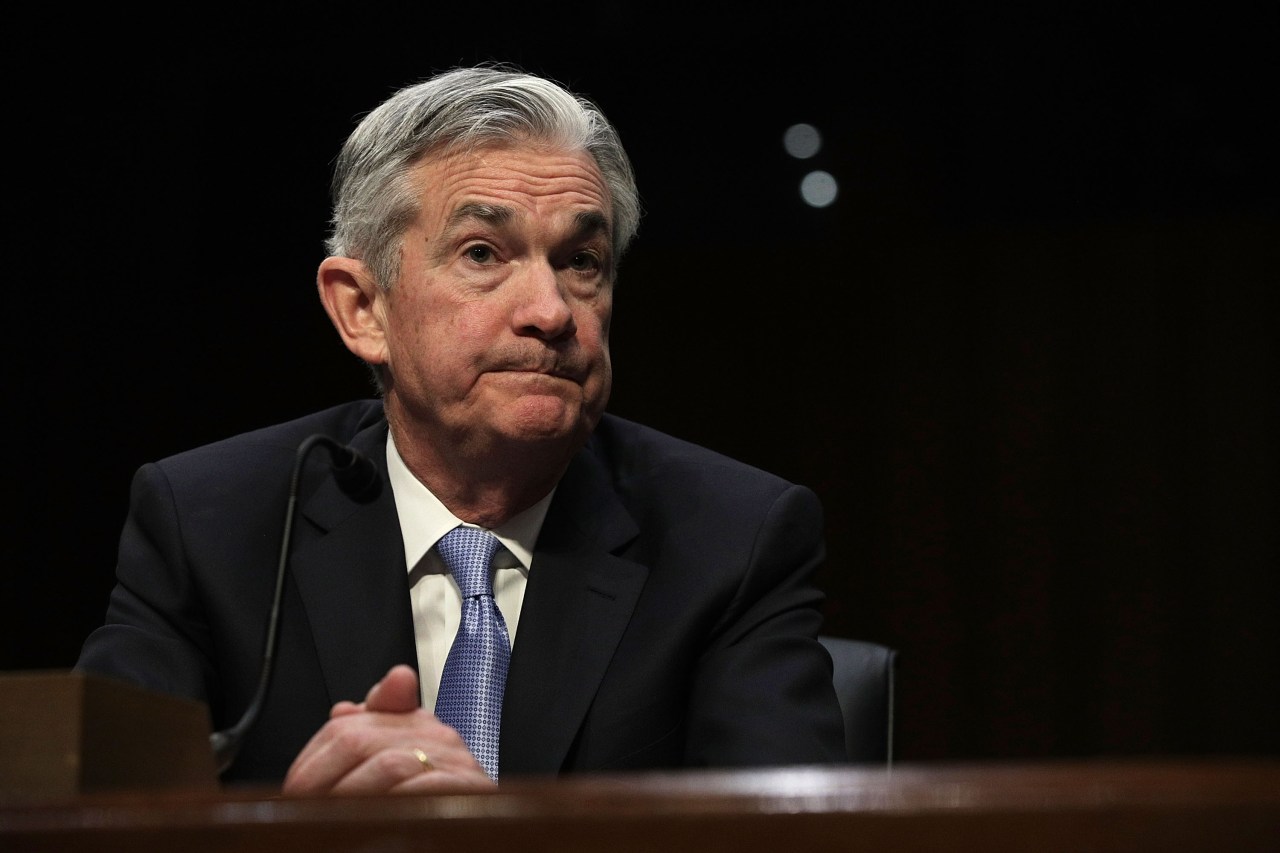Trump's Legacy: A Herculean Task For The Next Federal Reserve Chair

Table of Contents
The Inflationary Legacy
The inflationary pressures experienced during the Trump administration pose a significant challenge for the next Federal Reserve Chair. Factors like significant fiscal stimulus, coupled with supply chain disruptions, contributed to a rise in the consumer price index (CPI). This increase in inflation complicates the Fed's primary mandate of maintaining price stability. The delicate balance between controlling inflation and avoiding a recession will require precise and nuanced monetary policy adjustments.
- Increased government spending under Trump's administration: The combination of tax cuts and increased military spending fueled a substantial rise in the national debt, contributing to inflationary pressures.
- Impact of tax cuts on the national debt and inflation: While intended to stimulate economic growth, the tax cuts ultimately added to the fiscal deficit, increasing the money supply and potentially fueling inflation.
- Supply chain bottlenecks and their contribution to inflation: Trade disputes and global events exacerbated existing supply chain issues, leading to shortages and increased prices for various goods and services.
- The challenge of managing inflation without triggering a recession: Raising interest rates to combat inflation risks slowing economic growth and potentially leading to a recession. The next Fed Chair will need to carefully navigate this delicate balancing act.
Navigating the National Debt
A significant increase in the national debt during the Trump years presents another considerable hurdle for the next Federal Reserve Chair. This substantial debt burden has implications for long-term economic stability and necessitates careful fiscal and monetary policy management. The high levels of national debt limit the government's flexibility in responding to future economic shocks and can lead to higher interest rates, further impacting economic growth.
- The impact of tax cuts on the national debt: The substantial tax cuts enacted during the Trump administration significantly increased the national debt, creating a long-term fiscal challenge.
- Increased military spending and its effect on the budget: Increased military spending contributed to the rising national debt, placing further strain on the federal budget.
- The long-term consequences of a high national debt: A high national debt can lead to higher interest rates, reduced investor confidence, and slower economic growth.
- The Fed's role in managing the debt and its potential impact on interest rates: While the Fed doesn't directly manage the national debt, its monetary policy decisions can influence interest rates, which in turn affect the cost of servicing the debt.
Uncertainties in Economic Growth and Unemployment
The economic growth patterns during the Trump administration, characterized by periods of strong growth punctuated by potential vulnerabilities, leave the next Fed Chair with considerable uncertainty. Maintaining sustainable economic growth and low unemployment while simultaneously managing inflation and the national debt will be a complex endeavor. The legacy of Trump's economic policies will continue to shape the economic landscape for years to come.
- Analysis of GDP growth during the Trump presidency: While GDP growth was positive in certain periods, the sustainability of this growth remains a question.
- The impact of trade policies on economic growth and employment: Trump's trade policies, including tariffs and trade wars, had a mixed impact on economic growth and employment, creating both winners and losers.
- The potential for economic volatility in the coming years: The combination of high national debt, inflation, and lingering effects of trade disputes creates the potential for economic volatility.
- Balancing economic growth with responsible fiscal and monetary policy: The next Fed Chair will need to carefully balance the need for economic growth with the need for responsible fiscal and monetary policies to ensure long-term economic stability.
The Role of Trade Policy
Trump's trade policies, characterized by tariffs and trade wars, significantly impacted the US economy and the global trade system. These policies led to disruptions in global supply chains, increased prices for consumers, and uncertainty for businesses. The next Federal Reserve Chair will need to consider the long-term consequences of these protectionist measures when formulating monetary policy.
- The impact of tariffs on inflation and consumer prices: Tariffs increased the cost of imported goods, contributing to inflation and impacting consumer spending.
- Disruptions to global supply chains caused by trade disputes: Trade wars led to uncertainty and disruptions in global supply chains, impacting businesses and consumers alike.
- The effect of trade policies on US businesses and industries: Some US businesses benefited from protectionist policies, while others suffered from increased costs and reduced access to international markets.
- The long-term consequences of protectionist trade policies: The long-term effects of protectionist trade policies on global trade and economic growth remain uncertain.
Conclusion
The economic legacy of the Trump administration presents a significant challenge for the next Federal Reserve Chair. Managing inflation, addressing the high national debt, ensuring sustainable economic growth, and navigating the aftermath of protectionist trade policies require skillful leadership and strategic decision-making. The next Fed Chair must demonstrate a deep understanding of the complexities inherited from the Trump era to effectively guide the US economy towards a stable and prosperous future. Understanding Trump's economic legacy is crucial for anyone interested in the future trajectory of the US economy and the immense responsibility facing the next Federal Reserve Chair.

Featured Posts
-
 Ahmed Hassanein A Potential Nfl Draft Breakthrough For Egypt
Apr 26, 2025
Ahmed Hassanein A Potential Nfl Draft Breakthrough For Egypt
Apr 26, 2025 -
 Should You Return To A Company That Laid You Off
Apr 26, 2025
Should You Return To A Company That Laid You Off
Apr 26, 2025 -
 Ahmed Hassaneins Road To The Nfl A Historic Possibility
Apr 26, 2025
Ahmed Hassaneins Road To The Nfl A Historic Possibility
Apr 26, 2025 -
 Why Is Gold A Safe Haven Asset Amidst Global Trade Conflicts
Apr 26, 2025
Why Is Gold A Safe Haven Asset Amidst Global Trade Conflicts
Apr 26, 2025 -
 Analyzing The Chinese Automotive Market The Experiences Of Bmw Porsche And Others
Apr 26, 2025
Analyzing The Chinese Automotive Market The Experiences Of Bmw Porsche And Others
Apr 26, 2025
